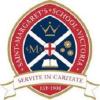Traditional Arts Teacher
Kahnawake, QC, CA, Canada
Job Description
Position Summary
The main purpose of the Traditional Arts Teacher is to plan, organize and implement an instructional program that teaches and promotes Kanien'keha:ka language and culture through traditional arts and cultural practices within the school or community setting. This includes, but is not limited to, traditional artwork, storytelling, music, dance, drama and language preservation, while addressing their intellectual, social, physical and emotional needs.
Key Responsibilities
Responsibility 1: Planning, Organization and Implementation of Instructional Program
To plan, prepare and deliver lesson plans and instructional materials that facilitate active learning. To ensure short-term and long-term planning using weekly, monthly and yearly plans in order to maintain program sequence and continuity. To plan and conduct activities for a balanced program of instruction. To assist in the development of culturally relevant, integrated, cooperative and student-centered methods, materials and resources. To teach student about various traditional art forms, including their history, significance, and practical application. Guide students in creating traditional artwork, fostering creativity and cultural pride. Organize and participate in school events, exhibitions, and performances that showcase traditional arts To use a variety of communication techniques with an emphasis on questioning techniques, group discussions and student-centered conferences. To support the inclusion and integration of students with special needs. To participate in the development of Individual Education Plan (IEP) process with the Student Services Team and to weekly monitor and evaluate the IEP's.
Responsibility 2: Student Learning
To encourage and monitor the progress of individual students and use information to adjust teaching strategies. To establish and communicate clear objectives for all learning activities. To instruct and monitor students in the use of learning materials and equipment. To provide a variety of learning materials and resources for use in educational activities. To encourage creative, experiential and cooperative participation of all students. To communicate necessary information regularly to students, parents and colleagues regarding student progress and student needs. To observe student's performance and development. To use relevant technology to support and differentiate instruction.
Responsibility 3: Student Assessment
To provide students with appropriate and timely feedback on their work. To provide constructive feedback on student artwork, while focusing on student growth and cultural understanding Assess student progress by using a variety of evaluation methods and materials including observation, checklists, presentations, portfolios, etc. To assign and grade class work, homework, tests, projects and assignments in a timely fashion. To use a variety of evaluation methods and materials including observation, checklists, tests, conferences, portfolios, etc. To administer tests and exams in accordance with pre-established procedures in order to assess students' academic skills and learning on an ongoing basis. To prepare and submit the required report cards and forms within pre-established deadlines (3 times a year). To maintain accurate and complete records of students' progress and development. To participate in the required school and parent meetings. To oversee the behavior and conduct of all students throughout the school day.
Responsibility 4: Classroom Management
To organize a classroom as a learning environment that provides cooperative and independent work and study environment for all students. To integrate the school environment, the community and the natural environment to enhance student learning. To manage student behavior and maintain discipline in the classroom by establishing and enforcing rules and procedures in accordance with the disciplinary systems of KEC. To respond appropriately to students' needs, aptitude and learning styles.
Responsibility 5: Collaboration with KEC's Strategic Plan
To collaborate in developing, establishing and achieving KEC's philosophy, goals and objectives. To support the implementation of school's rules, policies and procedures regarding the general operation of the school. To participate collaboratively in the formative and summative evaluation process using the established Performance Appraisal process. To encourage parent and community involvement. To work with KEC Cultural Mentors, community members and elders to incorporate traditional knowledge into the curriculum. To participate in appropriate professional activities.
Skill & Competency Requirements
Core Competencies:
The necessary core competencies for this position include:
Strong interpersonal skills Exceptional leadership skills Sound judgement and critical thinking Teamwork Professionalism and high ethics standards
Technical Competencies:
Required technical competencies for this position include:
Superior oral and written communication skills Strong language processing skills of reading, writing and spelling. Strong mathematics skills Strong computer skills and the ability to learn the school database system
Education, Knowledge & Experience
Bachelor of Education degree or related field teaching degree OR working towards a Bachelor of Education degree and previous teaching experience OR Teaching certificate with a minimum of 3 years teaching experience Solid knowledge of subject matter for all subjects and courses in the assigned program of studies Knowledge of growth and developmental characteristics of children and/or adolescents Strong interpersonal skills and ability to work collaboratively in a team Commitment to continuous professional development and language and cultural preservation Understanding of Kanien'keha:ka traditional art, cultural practices and values *
Proficiency in Kanien'keha language is preferable but not required
Beware of fraud agents! do not pay money to get a job
MNCJobz.com will not be responsible for any payment made to a third-party. All Terms of Use are applicable.
Job Detail
-
Job IdJD2866483
-
IndustryNot mentioned
-
Total Positions1
-
Job Type:Full Time
-
Salary:Not mentioned
-
Employment StatusPermanent
-
Job LocationKahnawake, QC, CA, Canada
-
EducationNot mentioned

